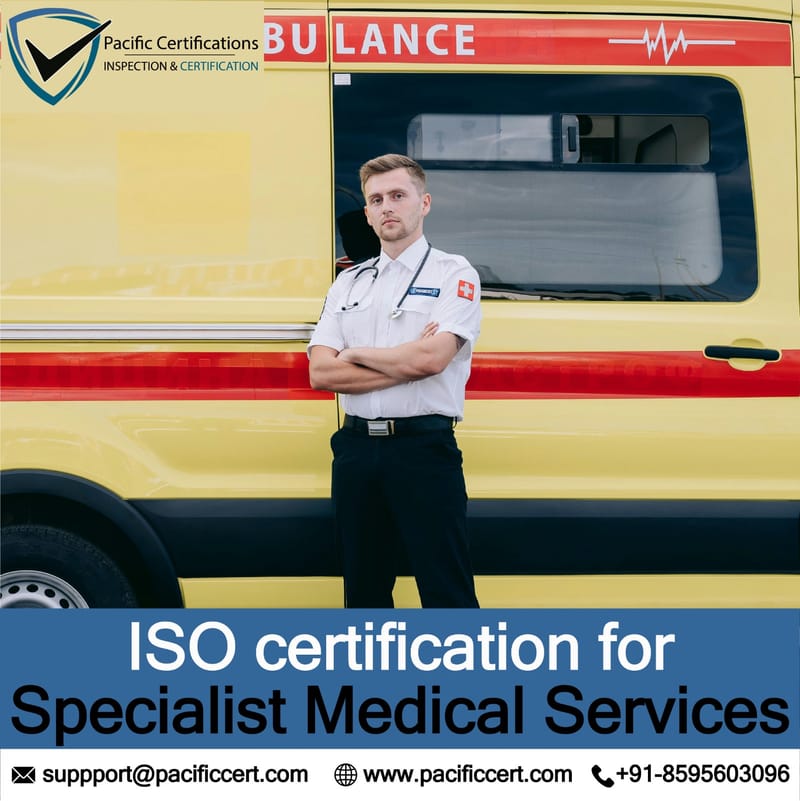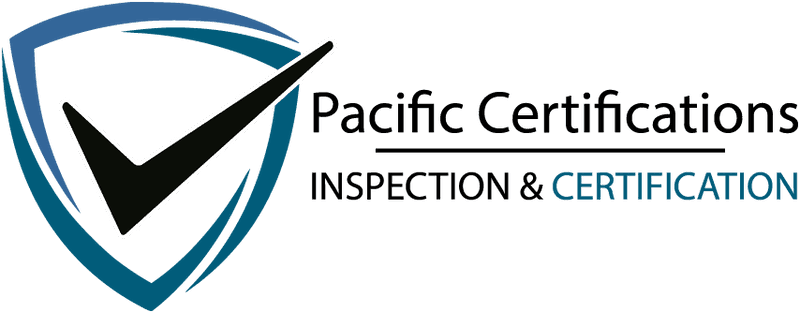ISO Certifications for Specialist Medical Services, Requirements and Benefits

In the dynamic and highly regulated field of specialist medical services, maintaining high standards of quality, safety, and efficiency is paramount. ISO certifications provide a robust framework to ensure these standards are consistently met, fostering trust and reliability among patients and stakeholders.
For specialist medical services, several ISO standards are particularly relevant, helping organizations to streamline processes, enhance patient care, and comply with regulatory requirements.
Key ISO Standards for Medical Services
ISO 9001:2015 - Quality Management Systems: ISO 9001:2015 sets out the criteria for a quality management system and is the only standard in the ISO 9000 family that can be certified to. It can be used by any organization, large or small, regardless of its field of activity
ISO 13485:2016 - Medical Devices Quality Management Systems: This standard specifies requirements for a quality management system where an organization needs to demonstrate its ability to provide medical devices and related services that consistently meet customer and applicable regulatory requirements
ISO 15189:2012 - Medical Laboratories Requirements for Quality and Competence: ISO 15189 specifies requirements for quality and competence particular to medical laboratories
ISO 45001:2018 - Occupational Health and Safety Management Systems: ISO 45001 specifies requirements for an occupational health and safety (OH&S) management system, and gives guidance for its use, to enable organizations to provide safe and healthy workplaces by preventing work-related injury and ill health.
Click here to find out more applicable standards to your industry
How Pacific Certifications can help
At Pacific Certifications, we specialize in providing comprehensive audit and certification services to help organizations in specialist medical services achieve ISO certification. Our role encompasses the following key aspects:
Audit Services
- Initial Audit: We conduct an initial audit to assess the existing systems and processes against the relevant ISO standards. This helps identify gaps and areas for improvement
- Surveillance Audits: Regular surveillance audits are conducted to ensure continuous compliance with the ISO standards
- Re-certification Audits: We perform re-certification audits to ensure ongoing conformity and improvement in the quality management systems
Certification Services
- Issuance of Certification: Upon successful completion of the audit process, we issue the ISO certification, demonstrating the organization's commitment to quality and compliance
- Support and Guidance: We provide ongoing support and guidance to help organizations maintain their certification and continuously improve their systems
Market Trends and Research
According to recent market research conducted in May 2024, there is a growing emphasis on quality and safety in the healthcare sector, driven by increasing patient awareness and stringent regulatory requirements. Organizations that achieve ISO certifications are better positioned to meet these demands, gaining a competitive edge and enhancing their reputation in the market.
The trend towards digital health and telemedicine further underscores the need for robust quality management systems, as highlighted in reports by industry analysts
At Pacific Certifications, we are dedicated to helping organizations navigate the complexities of the certification process, providing expert audit and certification services to achieve and maintain ISO compliance. By partnering with us, specialist medical services can enhance their operational performance, meet regulatory requirements, and ultimately improve patient care
For more information on how we can assist with your ISO certification needs, please contact us at [email protected]!
Requirements & benefits of ISO certifications for Specialist Medical Services
ISO certification for Specialist Medical Services encompasses various standards, each designed to address specific aspects of quality, safety, and operational efficiency in healthcare settings. Below are the key requirements for obtaining ISO certification and the benefits that these certifications can bring to Specialist Medical Services
Key ISO Standards and Their Requirements
ISO 9001:2015 - Quality Management Systems
Requirements:
- Establish a quality management system with documented procedures and policies.
- Demonstrate a commitment to quality and customer satisfaction
- Implement continuous improvement processes
- Ensure staff competence and resource adequacy
ISO 13485:2016 - Medical Devices - Quality Management Systems
Requirements:
- Develop a quality management system specifically for the design, manufacture, and distribution of medical devices
- Maintain effective control processes and ensure traceability throughout the device lifecycle
- Address specific regulatory requirements and safety measures for medical devices
ISO/IEC 27001:2022- Information Security Management
Requirements:
- Implement an information security management system (ISMS) covering data privacy, integrity, and accessibility
- Conduct risk assessments and manage risks appropriately
- Ensure all employees are aware of their roles in information security
ISO 45001:2018 - Occupational Health and Safety Management Systems
Requirements:
- Implement an effective occupational health and safety management system.
- Promote a safe and healthy workplace environment through proactive risk prevention, hazard identification, and elimination.
- Engage staff at all levels in occupational health and safety matters.
ISO 15189:2012 - Medical Laboratories - Requirements for Quality and Competence
Requirements:
- Maintain a management system tailored for the specific needs of medical laboratories
- Ensure the competence of laboratory personnel and the accuracy of test results
- Regularly participate in external quality assessment schemes
How ISO Certification Benefits Specialist Medical Services
- Regulatory Compliance: Many healthcare regulations and government contracts require or favor ISO-certified providers, facilitating compliance and market access.
- Improved Risk Management: ISO standards help identify and mitigate risks, leading to safer patient care and reduced likelihood of errors or accidents.
- Operational Excellence: Certification often drives process improvements that help streamline operations and improve service delivery.
- Market Differentiation: Being ISO-certified can distinguish a medical service provider from competitors, appealing to discerning patients and other stakeholders looking for high-quality care.
Overall, ISO certification helps Specialist Medical Services not only meet compliance and operational excellence but also foster a culture of continuous improvement and patient-centered care.
Pacific Certifications is accredited by ABIS, in case you need support with ISO certification for your Specialist Medical Services business, please contact us at [email protected] or +91-8595603096
Read More at: Blogs by Pacific Certifications

